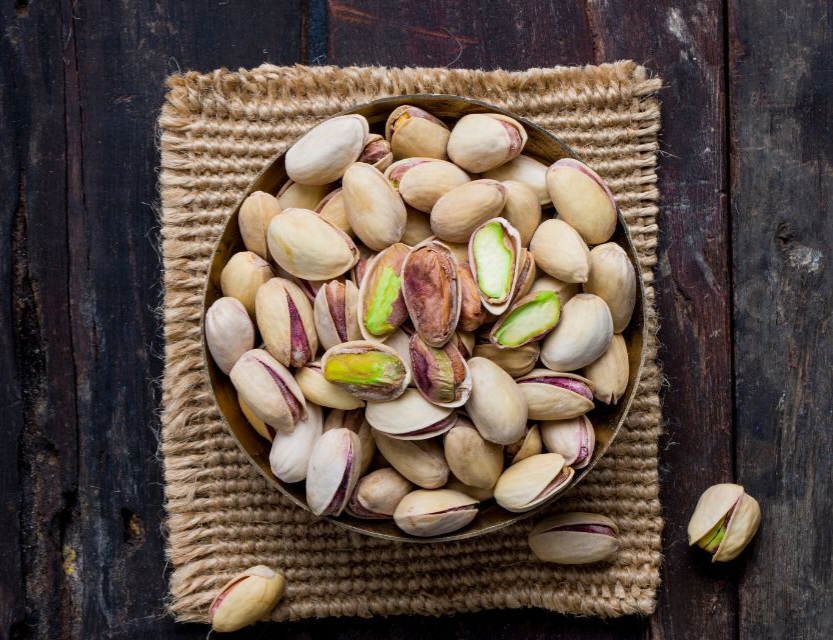Categories
The latest content
-

Customs Clearance & Import Regulations for Bulk Iranian Pinto Beans in EU, Middle East & Africa
..
-

Quality Control & Laboratory Testing Standards for Iranian Pinto Beans
..
-

Logistics & Shipping Solutions for Bulk Iranian Pinto Bean Exports
..
-

Minimum Order Quantity (MOQ) & Bulk Pricing for Iranian Pinto Bean Buyers
..

Tags
Customs Clearance & Import Regulations for Bulk Iranian Pistachios in EU, Middle East & Africa

Iranian pistachios are among the most highly demanded nuts worldwide, renowned for their taste, size, and nutritional value. However, before these premium nuts reach supermarkets, food manufacturers, and retail shelves, exporters and importers must successfully navigate the complex landscape of customs clearance and import regulations.
The EU, Middle East, and African markets each enforce different compliance requirements, ranging from aflatoxin testing to Halal certifications and tariff structures. For international buyers, understanding these rules ensures faster clearance, reduced costs, and minimized risks of shipment delays or rejections.
Essential Customs Documentation for Iranian Pistachio Imports
Before bulk pistachios are cleared through customs, several key documents are typically required:
1. Commercial Invoice – Detailing product description, quantity, price, and seller/buyer details.
2. Packing List – Outlines packaging method, weight, and number of cartons.
3. Certificate of Origin – Verifies that pistachios are grown and processed in Iran.
4. Phytosanitary Certificate – Issued by Iranian authorities to confirm the shipment is free from pests and diseases.
5. Aflatoxin Test Report – Mandatory in the EU and some African countries.
6. Bill of Lading (B/L) – Proof of shipment and logistics.
7. Food Safety Certifications – ISO, HACCP, Organic, or Halal depending on the destination market.
Import Regulations in the European Union (EU)
The EU is one of the most strictly regulated markets for pistachio imports.
• Aflatoxin Limits: The EU enforces extremely low thresholds (usually ≤10 ppb for human consumption). Every shipment must undergo certified laboratory testing.
• Border Control Checks: Pistachios are categorized as high-risk products, meaning shipments are randomly sampled and tested at entry points.
• Tariffs & Duties: Import duties may apply depending on trade agreements. Importers must calculate landed costs carefully.
• Labeling Requirements: Clear labeling on packaging (origin, lot number, net weight, and best-before date) is mandatory.
Import Regulations in the Middle East
The Middle East is a high-consumption market for Iranian pistachios, with strong demand in GCC countries.
• Halal Certification: Essential for clearance in Saudi Arabia, UAE, Qatar, and Kuwait.
• Food Labeling Laws: Labels must often include Arabic translations of product details.
• Customs Clearance Speed: Shipments typically clear faster than in the EU but still require comprehensive documentation.
• Import Duties: Vary by country, but Free Trade Agreements may reduce tariffs in some cases.
Import Regulations in Africa
Africa’s pistachio import market is expanding, particularly in North Africa (Egypt, Morocco, Algeria) and Sub-Saharan Africa (South Africa, Nigeria, Kenya).
• Phytosanitary Requirements: Countries often require strict plant health certificates to prevent pest risks.
• Aflatoxin Testing: Growing enforcement in markets like South Africa, especially for retail distribution.
• Customs Bureaucracy: Some African countries have longer clearance times due to paperwork and port inefficiencies.
• Labeling & Language: French labeling is often required in North Africa, while English is needed in East and West African countries.
Challenges in Customs Clearance
1. Delays in Laboratory Testing – Especially at EU entry points.
2. Document Errors – Small mistakes in invoices or certificates can cause rejections.
3. Changing Import Regulations – Countries frequently update food import laws.
4. Logistics Bottlenecks – Port congestion can increase lead times.
How Tamila Agrifood Ensures Smooth Pistachio Clearance?
At Tamila Agrifood, we simplify the process by:
• Providing complete export documentation with every shipment.
• Conducting pre-shipment aflatoxin tests in accredited labs.
• Offering Halal, Organic, HACCP, and ISO certifications as per buyer requirements.
• Working with experienced freight forwarders and customs brokers to avoid clearance delays.
• Adapting packaging and labeling to comply with regional import laws.
Final Thoughts
Navigating customs clearance and import regulations for bulk Iranian pistachios requires precision, compliance, and expertise. While the EU demands rigorous aflatoxin testing, the Middle East emphasizes Halal certification, and Africa enforces phytosanitary rules—all regions share a common priority: food safety and product quality.
At Tamila Agrifood, we ensure our pistachios meet the highest global standards, making the customs process smoother and faster for our partners. By handling compliance efficiently, we allow buyers to focus on what truly matters—bringing premium Iranian pistachios to their markets.
Email: tamilaagrifood@gmail.com
WhatsApp for Quotations: +989141858935



